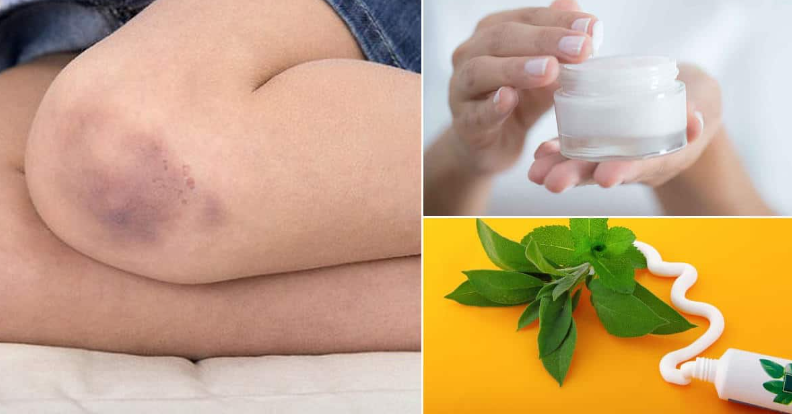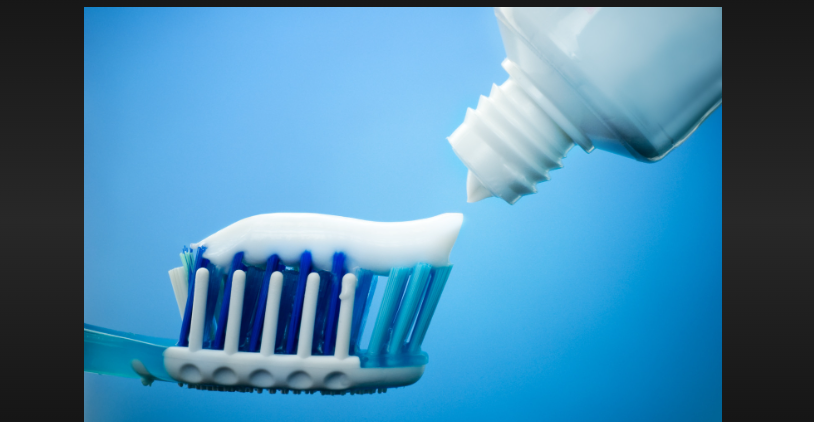Exploring the Effectiveness of Using Toothpaste on Bruises: How Long to Leave It On?
Bruises, those colorful marks that appear on the skin after an injury, are a common occurrence for many people. While they generally heal on their own, some individuals seek remedies to potentially speed up the healing process. One unconventional method that has garnered attention is applying toothpaste to bruises. In this comprehensive guide, we'll delve into the practice of using toothpaste on bruises, exploring its effectiveness and addressing the question: "How long should you leave toothpaste on a bruise?"

How long to leave toothpaste on a bruise?
1. Understanding Bruises: A Quick Overview
Before we dive into the details of using toothpaste on bruises, let's have a basic understanding of what bruises are and how they form.
1.1. Bruise Formation:
A bruise, also known as a contusion, occurs when small blood vessels beneath the skin break due to impact or injury. This leads to blood leakage, causing the characteristic discoloration of the skin.
1.2. Natural Healing:
In most cases, bruises heal naturally over time as the body reabsorbs the leaked blood and repairs the damaged blood vessels.
2. Using Toothpaste on Bruises: Does It Work?
The practice of using toothpaste on bruises as a home remedy has gained popularity, but its effectiveness is a topic of debate among experts.
2.1. Cooling Sensation:
Toothpaste contains ingredients like menthol that create a cooling sensation when applied to the skin. This can provide temporary relief from pain or discomfort associated with bruises.
2.2. Limited Scientific Evidence:
Despite anecdotal claims, there is limited scientific evidence to support the idea that toothpaste significantly accelerates bruise healing or reduces discoloration.
2.3. Potential Irritation:
Some toothpaste ingredients, such as flavoring agents or abrasives, might irritate the skin or cause an allergic reaction in some individuals.
3. Duration for Applying Toothpaste on Bruises
If you decide to try the toothpaste method, it's important to know how long to leave it on to potentially maximize its benefits.
3.1. Short Duration:
Many sources suggest leaving toothpaste on a bruise for 10 to 15 minutes before gently rinsing it off with water. This short application time is often recommended to prevent skin irritation.
3.2. Multiple Applications:
Some individuals apply toothpaste multiple times a day, allowing the skin to rest between applications. This approach aims to harness the potential cooling effect without overexposing the skin to toothpaste ingredients.
3.3. Avoid Overnight Use:
While toothpaste is generally safe to apply for short periods, leaving it on overnight is not recommended. Prolonged exposure could lead to skin irritation or adverse reactions.
4. Alternate Remedies for Bruises
If using toothpaste doesn't align with your preferences, there are alternative methods you can explore to manage bruising.
4.1. Cold Compress:
Applying a cold compress to the bruised area shortly after the injury can help reduce swelling and minimize the extent of discoloration.
4.2. Arnica Gel:
Some individuals find relief from bruising by applying arnica gel, a natural remedy derived from the arnica plant, which is believed to have anti-inflammatory properties.
4.3. Elevating the Area:
Elevating the bruised area above heart level can help minimize blood flow to the site, potentially reducing swelling and the extent of the bruise.

Toothpaste
The use of toothpaste on bruises is an intriguing home remedy that has gained attention for its potential benefits. While it might offer a temporary cooling sensation and provide some relief, there is limited scientific evidence to support its effectiveness in significantly speeding up bruise healing or reducing discoloration. If you choose to try this method, it's advisable to apply toothpaste for a short duration, such as 10 to 15 minutes, and avoid leaving it on overnight to prevent skin irritation.
Remember that bruises generally heal on their own over time, and if you have concerns about the severity of a bruise or experience unusual symptoms, consulting a medical professional is always recommended. Additionally, exploring alternative remedies like cold compresses or arnica gel can provide you with a range of options to manage bruising and promote your body's natural healing process.